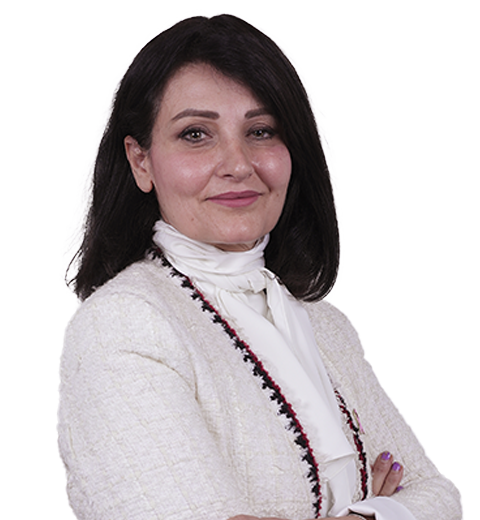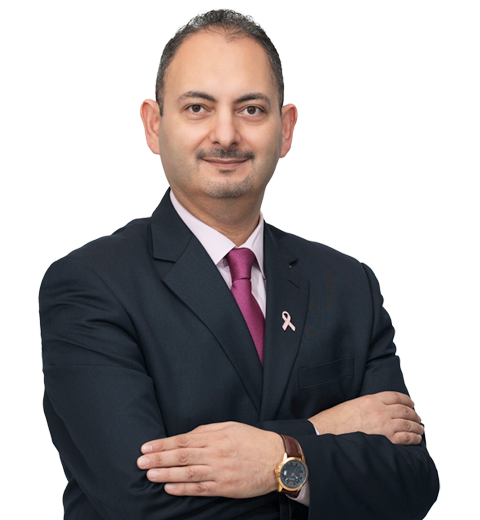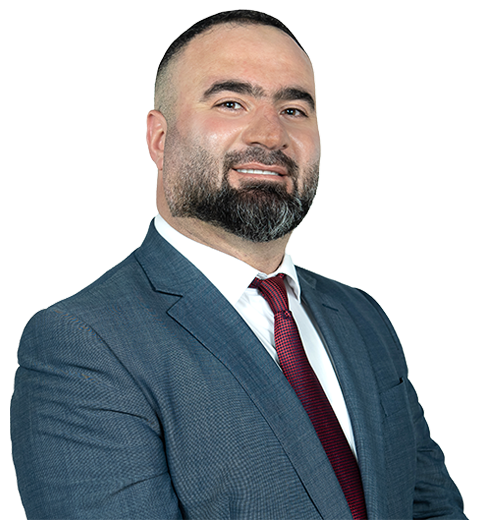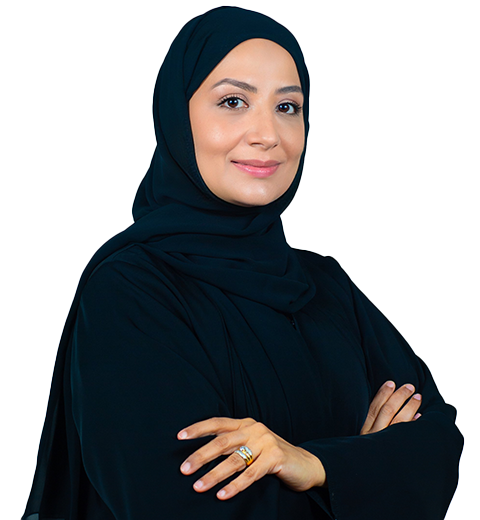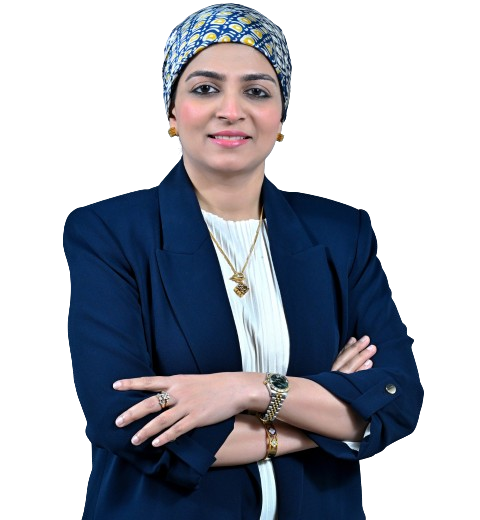Breast Cancer

Breast cancer is one of the most common cancers among women worldwide. At Burjeel Cancer Institute, we offer comprehensive, personalized care for breast cancer patients, from early detection and diagnosis to advanced treatment options and ongoing survivorship support. Our multidisciplinary team of experts provides cutting-edge therapies, including surgery, chemotherapy, radiation therapy, targeted therapy, and immunotherapy, all designed to achieve the best outcomes for each individual patient.
Symptoms and Risk Factors
- A lump or thickening in the breast or underarm area
- Changes in the size or shape of the breast
- Dimpling or puckering of the breast skin
- Nipple discharge (other than breast milk), particularly if bloody
- Changes in the appearance of the nipple or breast skin (such as redness, scaling, or inversion)
- Breast pain or tenderness that does not go away

Risk Factor for Breast Cancer
Age
The risk of developing breast cancer increases with age
Family history
A family history of breast cancer, particularly in first-degree relatives, increases the risk
Genetic mutations
Inherited mutations in genes such as BRCA1 and BRCA2 significantly raise the risk of breast cancer
Hormone replacement therapy (HRT)
Prolonged use of HRT may increase breast cancer risk
Personal history
A personal history of breast cancer or certain non-cancerous breast conditions increases risk
Obesity
Being overweight, particularly after menopause, increases the risk
Alcohol consumption
Regular alcohol intake is associated with an increased risk of breast cancer
Diagnostic Procedures
Symptoms of Breast Cancer may vary, but common signs include
3D Mammography (Digital Breast Tomosynthesis)
A highly advanced screening tool that provides detailed, three-dimensional images of the breast
Ultrasound
Often used to further evaluate abnormalities found on a mammogram
Breast MRI
Provides detailed images, particularly useful for women with dense breast tissue or those at high risk of breast cancer
Breast Biopsy
A sample of breast tissue is taken and examined for the presence of cancer cells
Genetic Testing
For patients with a family history of breast cancer, we offer genetic testing for BRCA1, BRCA2, and other cancer-related gene mutations
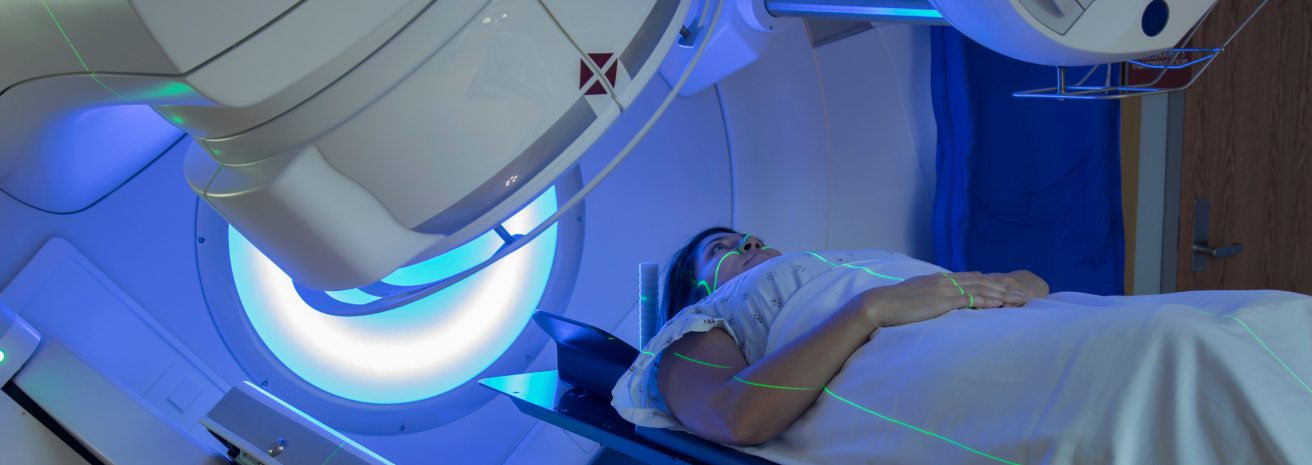
Treatment Options at Burjeel Cancer Institute
Targeted Therapy and Immunotherapy
- HER2-Targeted Therapy: For patients with HER2-positive breast cancer, targeted therapies like trastuzumab (Herceptin) are used to block the growth of cancer cells.
- Hormone Therapy: For hormone receptor-positive breast cancer, treatments like tamoxifen or aromatase inhibitors block the cancer’s access to estrogen.
- Immunotherapy: In certain cases, immunotherapy is used to help the body’s immune system recognize and attack cancer cells.
Chemotherapy and Medical Oncology
- Neoadjuvant Chemotherapy: Administered before surgery to shrink tumors.
- Adjuvant Chemotherapy: Given after surgery to eliminate any remaining cancer cells and reduce the risk of recurrence.
Radiation Therapy
- External Beam Radiation Therapy: Targeted radiation delivered to the breast or chest wall to destroy remaining cancer cells.
- Brachytherapy: Internal radiation therapy where radioactive sources are placed inside the breast tissue.
Surgical Treatment
- Lumpectomy: Removal of the tumor and a small margin of surrounding healthy tissue.
- Mastectomy: Removal of one or both breasts, either partially or completely, depending on the stage and type of breast cancer.
- Breast Reconstruction: Performed after mastectomy, offering patients the option to restore the shape of the breast through reconstructive surgery.
- Sentinel Lymph Node Biopsy: A procedure to determine if cancer has spread to the lymph nodes.
Targeted Therapy and Immunotherapy:
- HER2-Targeted Therapy: For patients with HER2-positive breast cancer, targeted therapies like trastuzumab (Herceptin) are used to block the growth of cancer cells.
- Hormone Therapy: For hormone receptor-positive breast cancer, treatments like tamoxifen or aromatase inhibitors block the cancer’s access to estrogen.
- Immunotherapy: In certain cases, immunotherapy is used to help the body’s immune system recognize and attack cancer cells.
Chemotherapy and Medical Oncology
- Neoadjuvant Chemotherapy: Administered before surgery to shrink tumors.
- Adjuvant Chemotherapy: Given after surgery to eliminate any remaining cancer cells and reduce the risk of recurrence.
Radiation Therapy
- External Beam Radiation Therapy: Targeted radiation delivered to the breast or chest wall to destroy remaining cancer cells.
- Brachytherapy: Internal radiation therapy where radioactive sources are placed inside the breast tissue.
Surgical Oncology
- Lumpectomy: Removal of the tumor and a small margin of surrounding healthy tissue.
- Mastectomy: Removal of one or both breasts, either partially or completely, depending on the stage and type of breast cancer.
- Breast Reconstruction: Performed after mastectomy, offering patients the option to restore the shape of the breast through reconstructive surgery.
- Sentinel Lymph Node Biopsy: A procedure to determine if cancer has spread to the lymph nodes.
Multidisciplinary Approach
Risk Factors for breast cancer include
- Breast Surgeons
- Medical Oncologists
- Radiation Oncologists
- Plastic and Reconstructive Surgeons
- Radiologists
- Pathologists
- Genetic Counselors
- Oncology Nurses
- Palliative Care Specialists
This collaborative approach ensures that every patient receives personalized care tailored to their unique diagnosis and needs
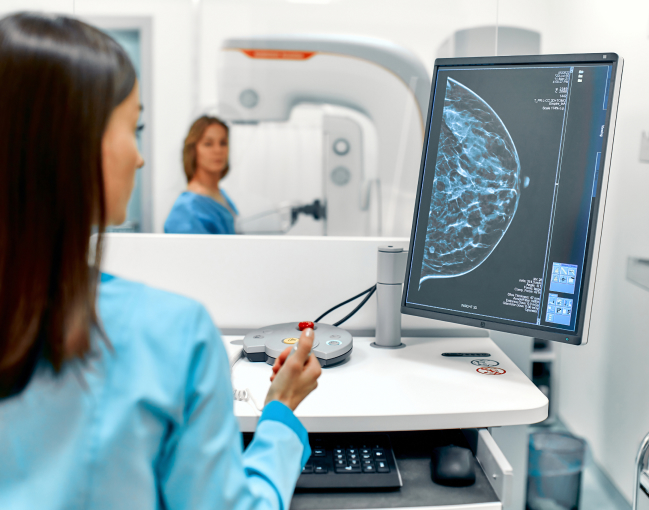
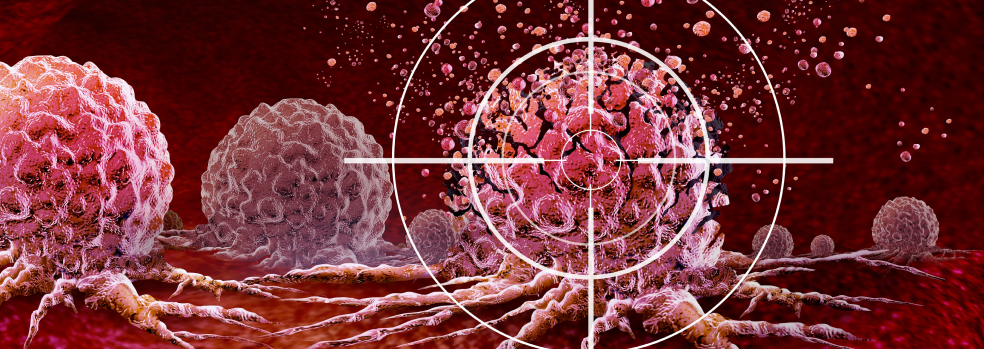
Supportive Care and Patient Services
At Burjeel Cancer Institute, we use advanced diagnostic tools to detect and stage breast cancer accurately, including
Nutrition Counseling
Personalized nutrition plans to support overall health during treatment
Psychosocial Support
Counseling services for patients and families to cope with the emotional challenges of a breast cancer diagnosis
Physical Rehabilitation
Post-surgical rehabilitation services to help patients regain strength and mobility after breast cancer surgery
Survivorship Program
Ongoing care and monitoring for breast cancer survivors, focusing on long-term health and well-being
Palliative Care
Symptom management and quality-of-life support for patients with advanced breast cancer
Meet Our Experts
At Burjeel Cancer Institute, breast cancer care is delivered through a multidisciplinary team approach, which includes
Patient Journey
We offer a range of supportive care services to help patients and their families through every step of the breast cancer journey
Initial Consultation
A consultation with our breast cancer team to discuss the patient’s symptoms, diagnostic results, and treatment options
Personalized Treatment Plan
A tailored treatment plan is developed based on the patient’s specific type and stage of breast cancer
Treatment and Support
Patients undergo surgery, chemotherapy, radiation, or other treatments, with the support of a dedicated team of specialists
Follow-Up Care
After treatment, patients receive regular follow-up care, including screenings, monitoring for recurrence, and survivorship support


